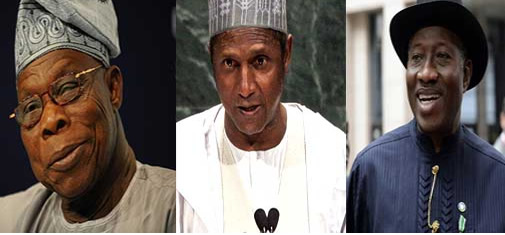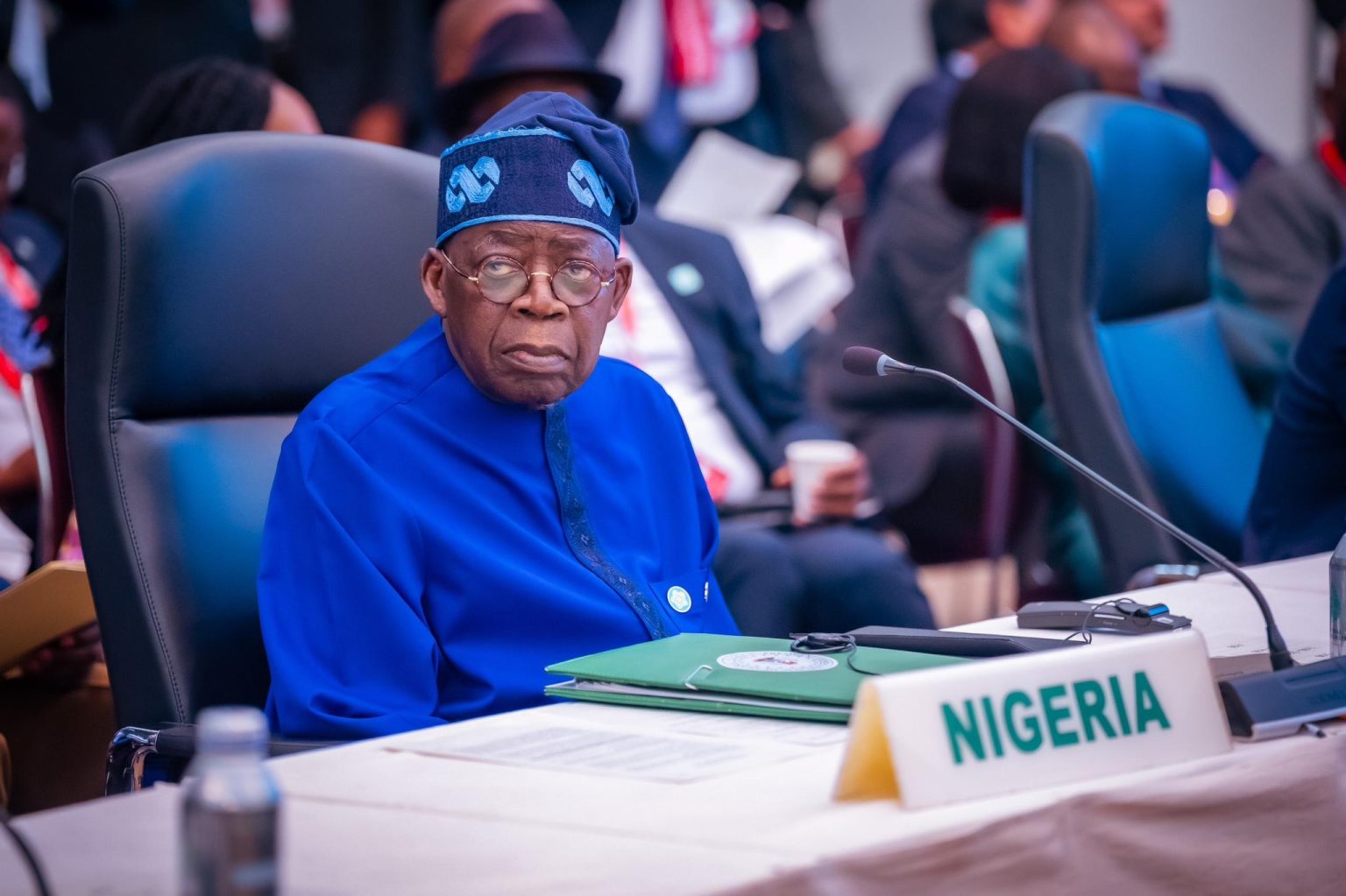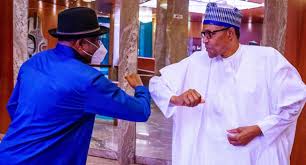Headlines
SERAP: Obasanjo, Yar’Adua, Jonathan Govts Squandered N11tr On Electricity

The Socio-Economic Rights and Accountability Project (SERAP) has released a new report which reveals how over N11 trillion meant to provide regular electricity supply was allegedly squandered under the governments of former presidents Olusegun Obasanjo, Umaru Musa Yar’Adua and Goodluck Jonathan.
The 65 pages report launched on Wednesday at the Westown Hotels, Lagos is titled: “From Darkness to Darkness: How Nigerians are Paying the Price for Corruption in the Electricity Sector”.
The report presented to the media by Yemi Oke, Ass. Professor, Energy/Electricity Law, Faculty of Law, University of Lagos, discloses that “the country has lost more megawatts in the post-privatisation era due to corruption, impunity, among other social challenges reflected in the report.”
According to the report, “The total estimated financial loss to Nigeria from corruption in the electricity sector starting from the return to democracy in 1999 to date is over Eleven Trillion Naira (N11 Trillion Naira). This represents public funds, private equity and social investment (or divestments) in the power sector. It is estimated that it may reach over Twenty Trillion Naira (N20 Trillion Naira) in the next decade given the rate of government investment and funding in the power sector amidst dwindling fortune and recurrent revenue shortfalls.”
The report shows: “The much-publicised power sector reforms in Nigeria under the Electric Power Sector Reform Act of 2005 is yet to yield desired and/or anticipated fruits largely due to corruption and impunity of perpetrators, regulatory lapses and policy inconsistencies. Ordinary Nigerians continue to pay the price for corruption in the electricity sector–staying in darkness, but still made to pay crazy electricity bills.”
The report also accuses Dr. Ransom Owan-led board of the Nigerian Electricity Regulatory Commission (NERC) of allegedly “settling officials with millions of Naira as severance packages and for embarrassing them with alleged Three Billion Naira (N3,000,000,000.00) Fraud. The authorities must undertake a thorough, impartial and transparent investigation as to the reasons why corruption charges were withdrawn, and to recover any corrupt funds.”
The report further called for the reopening and effective prosecution of corruption allegations, including the alleged “looting of the benefits of families of the deceased employees of Power Holding Company of Nigeria (PHCN) levelled against a former Permanent Secretary in the Ministry of Power, Godknows Igali.”
A senior lawyer, Mr Femi Falana, who chaired the report launch said: “This report is a must read, and I promise to lead in the follow-up litigation efforts to ensure the full implementation of the recommendations of the report.”
The report launch was also attended by Babatunde Irukera, the Director General/Chief Executive of the Consumer Protection Council (CPC); and Mr Ibrahim Magu, Chairman of the Economic and Financial Crimes Commission (EFCC) who was represented by Mr Osita Nwajah, Director Public Affairs EFCC.
Both agencies promised to work to ensure the full implementation of the recommendations contained in the report.
Others at the events are Barrister Babatunde Ogala; Dayo Olaide, Deputy Director Macarthur Foundation; Eva Kouka, Program Officer Ford Foundation; Motunrayo Alaka, Coordinator Wole Soyinka Centre for Investigative Journalism; representatives of the Independent Corrupt Practices and other Related Offences Commission (ICPC); the National Human Rights Commission, and the media.
The report reads: “The Obasanjo’s administration spent $10 billion on NIPP with no results in terms of increase in power generation. $13.278,937,409.94 was expended on the power sector in eight years while unfunded commitments amounted to $12 billion.”
“The Federal Government then budgeted a whopping N16 billion for the various reforms under Liyel Imoke (2003 to 2007) which went down the drains as it failed to generate the needed amount of electricity or meet the set goals. Imoke was alleged to have personally collected the sum of $7.8 million for the execution of the contract for the construction of the Jos-Yola Transmission Line, which was never executed. There were documented/reported allegations of corruption against Imoke that fizzled-out shortly thereafter.
“Professor Chinedu Nebo handed over the assets of the PHCN to private investors on November 1, 2013. Prof. Nebo is alleged to have corruptly funded the privatised power sector with over N200 Billion despite privatisation. The allegation of N200 Billion funding of the privatised power sector during Prof Nebo’s tenure should be thoroughly and transparently investigated and anyone suspected to be responsible prosecuted. Any corrupt funds should be fully recovered.
Source: Channelstv
Headlines
“Nigeria Is in a Hurry to Celebrate Victory Over Enemies of the State,” Says Tinubu as He Decorates New Service Chiefs

By: Fabian Apechihin
President Bola Ahmed Tinubu has urged the newly appointed service chiefs to discharge their duties with utmost dedication and renewed commitment, declaring that “Nigeria is in a hurry to celebrate victory over enemies of the state.”
The President made this statement on Thursday during the decoration ceremony of the new service chiefs with their ranks at the Aso Rock Presidential Villa in Abuja.
Those decorated were General Olufemi Oluyede as Chief of Defence Staff, Lieutenant-General Wahidi Shaibu as Chief of Army Staff, Air Marshal Kennedy Aneke as Chief of Air Staff, and Vice Admiral Idi Abbas as Chief of Naval Staff.
The ceremony was attended by Vice President Kashim Shettima and the spouses of the newly promoted officers, who joined the President in performing the decorations.
In his address, Tinubu underscored the central role of security in fostering national development and reaffirmed his administration’s commitment to protecting the lives and property of all Nigerians.
“Security is an essential element without which everything else becomes meaningless,” the President stated. “There can be no sustainable development if this fundamental need is not met. Our people and our nation must remain secure to enjoy the dividends of governance.”
The elevation and decoration of the new military chiefs followed their confirmation by the National Assembly on Wednesday, after a closed-door screening session with lawmakers.
It will be recalled that, in a recent overhaul of the nation’s military hierarchy, President Tinubu appointed:
- Lieutenant General Olufemi Olatubosun Oluyede as Chief of Defence Staff,
- Major General Waidi Shaibu as Chief of Army Staff,
- Rear Admiral Idi Abbas as Chief of Naval Staff,
- Air Vice Marshal Sunday Aneke as Chief of Air Staff, and
- Major General Emmanuel Undiandeye retained as Chief of Defence Intelligence.
The new appointments mark a strategic restructuring of Nigeria’s security leadership aimed at strengthening the fight against insurgency, banditry, and other threats to national stability.
Headlines
FG Dismisses Coup Rumour, Reaffirms Confidence in Nigerian Military

By: Fabian Apechihin
The Federal Government has dismissed widespread rumours of an alleged military coup plot against President Bola Tinubu, declaring its full confidence in the loyalty and professionalism of the Nigerian Armed Forces.
Minister of Information and National Orientation, Mohammed Idris, made this known in an interview with The Punch on Sunday, insisting that the administration has “no reason whatsoever” to doubt the assurances given by the Defence Headquarters, which had earlier denied reports linking the detention of 16 military officers to a coup attempt.
“The Federal Government has no reason to doubt the military on what it has said,” Idris stated.
“We believe the Armed Forces of Nigeria remain committed to protecting the nation’s territorial integrity and strengthening the fight against insecurity. The government commends their sacrifice and will continue to support them in safeguarding the country.”
The minister’s remarks came a day after the Director of Defence Information, Brigadier General Tukur Gusau, firmly debunked a report by Sahara Reporters alleging that the detention of 16 officers was connected to a failed coup plot and the cancellation of the 65th Independence Day parade.
Gusau described the publication as “false, mischievous, and deliberately aimed at creating unnecessary tension and public distrust.”
He clarified that the cancellation of the October 1 Independence Day parade was a purely administrative decision — taken to allow President Tinubu attend a key bilateral meeting abroad and to enable military units sustain ongoing counterinsurgency operations nationwide.
On the issue of the detained officers, Gusau said their case was “an internal disciplinary process” and not related to any political matter.
“The investigation involving the 16 officers is routine, aimed at upholding discipline and professionalism within the ranks,” he explained. “An investigative panel has been constituted, and its findings will be made public in due course.”
Reaffirming the military’s constitutional role and unwavering commitment to civilian rule, Gusau stressed emphatically:
“Democracy is forever.”
Headlines
FG Moves to Reform Civil Service Disciplinary System for Greater Efficiency

By: Fabian Apechihin
The Federal Government is set to overhaul the disciplinary control system in the civil service to promote efficiency, accountability, and timely resolution of cases.
The Chairman of the Federal Civil Service Commission (FCSC), Prof. Tunji Olaopa, made this known during a one-day joint retreat between the FCSC and the Office of the Head of the Civil Service of the Federation (OHCSF).
In a statement issued on Tuesday by the Commission’s Head of Press and Public Relations, Taiwo Hassan, Olaopa emphasized that the review would drive culture change, value reorientation, and improve the overall disciplinary framework in the public sector.
He likened the relationship between the FCSC and OHCSF to that of “Siamese twins,” noting that both bodies share crucial responsibilities in policy implementation, regulatory enforcement, and leadership across the service.
Olaopa also underscored the need for stronger collaboration and communication between the two institutions to avoid misunderstandings, build trust, and enhance service delivery.
The FCSC chairman further advocated for an integrated system that links merit-based recruitment, competency-driven human resource management, and performance evaluation with the civil service wage structure, saying such reforms would help reposition government as an “employer of choice.”
Speaking on behalf of the Head of the Civil Service of the Federation, Dr. Folasade Yemi-Esan, Esther Walson-Jack praised Olaopa’s reform initiatives, describing the retreat as a renewed commitment to strengthening collaboration and efficiency within the civil service.
The renewed push for reform follows rising concerns about bureaucratic bottlenecks, delayed disciplinary actions, and weak accountability mechanisms in Nigeria’s public administration.
-

 Uncategorized5 years ago
Uncategorized5 years agoFG, states urged to harness flooding for ranching, others with technology – Agbaje
-

 Headlines10 years ago
Headlines10 years agoBreaking: EFCC seals Borno House of Assembly, as Hon members take to their heels
-

 News12 years ago
News12 years agoNigeria Security Operatives Stage Manhunt For Homosexual Perpetrator
-

 News9 years ago
News9 years agoHow 21-year-old Girl fled community over accusation of lesbianism
-

 News10 years ago
News10 years agoYobe Gov Moves Against Deputy
-

 Opinion7 years ago
Opinion7 years ago7 signs she has friend zoned you
-
Technology4 years ago
Online job placement company headhunts women
-

 Headlines10 years ago
Headlines10 years agoBorno Dep Gov Abducts Another Church Leader







